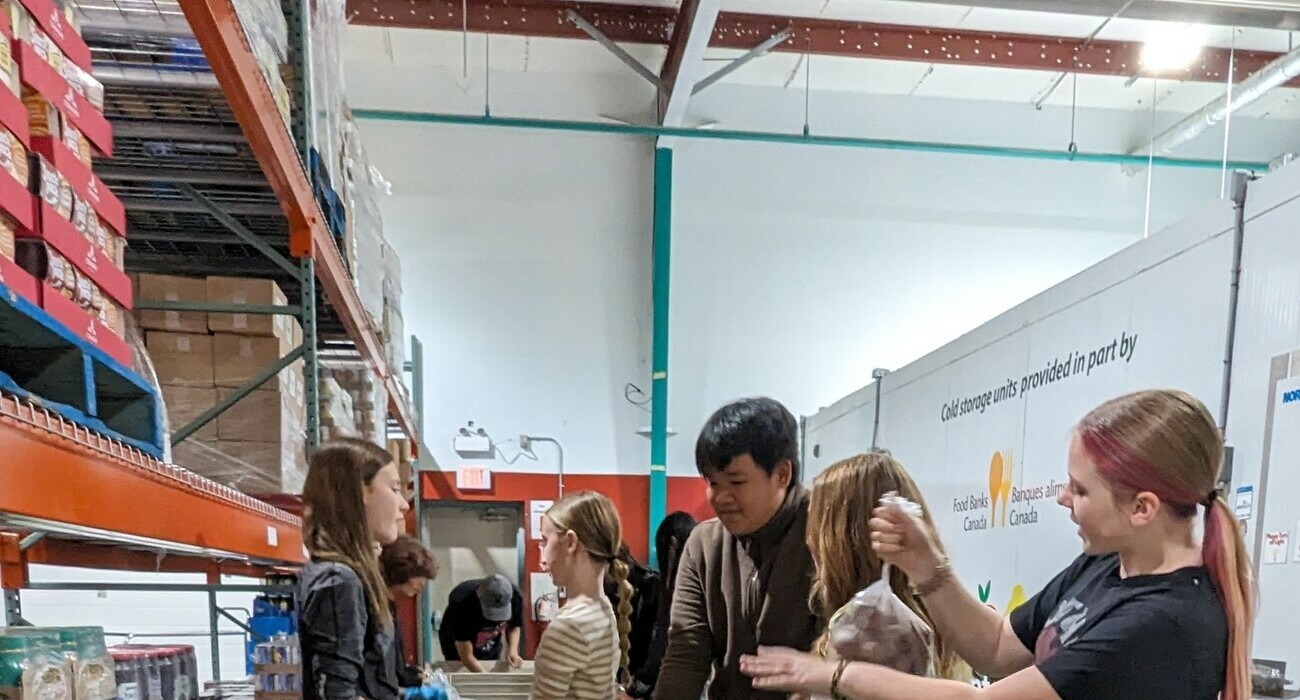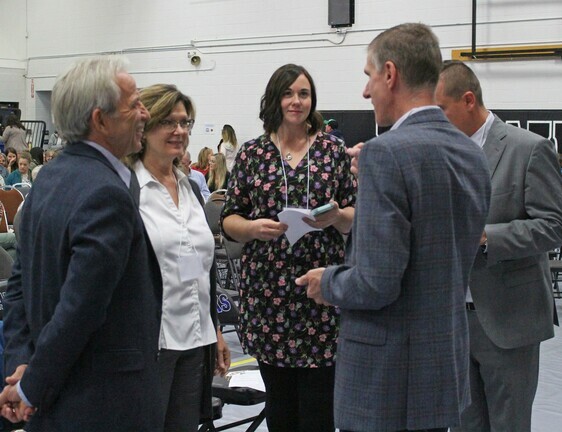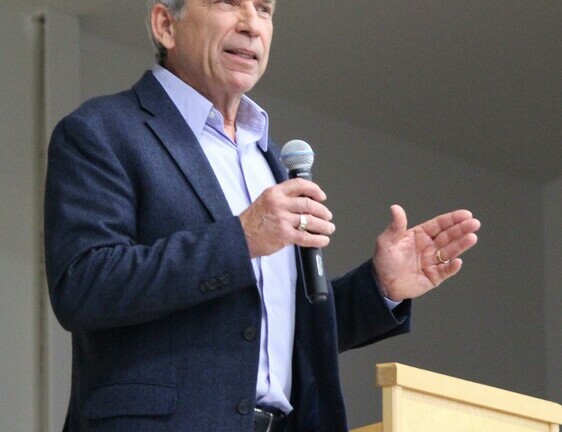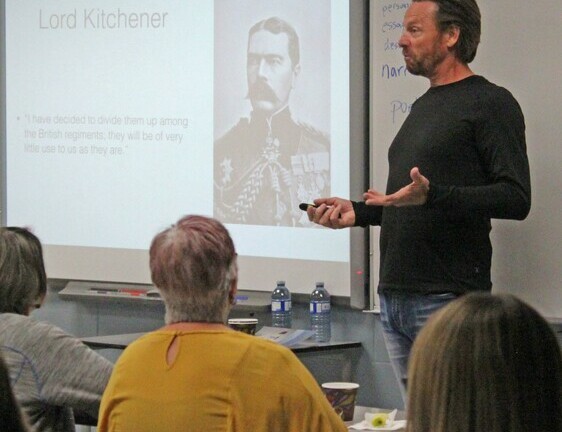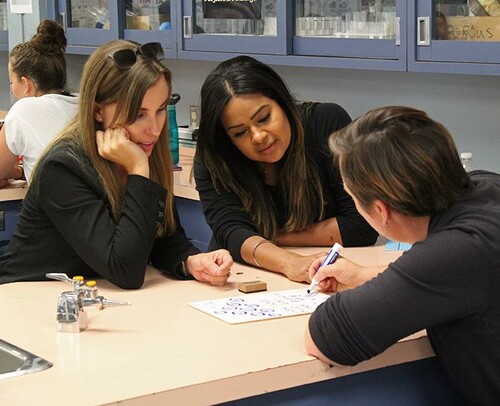
VULCAN – Staff from across Palliser Regional Schools were offered a variety of strategies and tools for the benefit of students at the first, division-wide professional development Summit of the new school year.
Keynote speaker Steve Van Bockern reminded them, however, not to overlook the most important thing they have to offer students – a connection with someone who cares about them.
“One of the most powerful ingredients in successfully working with youth at risk is relationships,” he said, adding a quote from Bill Milliken, an advocate for disenfranchised youth: “Programs don’t change kids. People do.”
Van Bockern is a former teacher and principal, and now a professor of education at Augustana University in South Dakota. He is the author of “Schools That Matter” and co-author of several others including “Reclaiming Youth at Risk: Our Hope for the Future,” and speaks world-wide on creating well-being in school settings.
School failure erodes a child’s self-worth and predicts poor life outcomes. Science has proven that everything we learn is processed through our emotional centres first, said Van Bockern, which flies in the face of educators who say their job is to teach content and not make friends with students.
“You’ll be a better math, science, English teacher if you understand that children are processing all that content material through their emotional centres first,” he added.
Van Bockern shared research with Palliser staff that shows how a child’s learning success increases with each adult who is in their “corner.” While it is human nature to gravitate towards like-minded people who don’t pose a threat, he urged the audience to recognize their biases and step towards that troubled student coming down the hall, and not away from them.
“The kids you most want to run away from, have the most to teach you,” said Van Bockern.
He also helped Palliser staff understand what students are trying to say or do when they act out, and explained the Circle of Courage as to the basic needs which must be met for a student to achieve wellness.
“Loving these difficult kids takes a lot of energy, and you need support,” Van Bockern said. “Only when I experience wellness, can I pass that along to students.”
His message was not lost on his Palliser audience, as the school division recently developed three goals with the input of staff. One of those is student and staff wellness, with the others being literacy and numeracy.
Organizers of the Summit were mindful of those goals when planning the break-out sessions. Another focus was Indigenous education.

